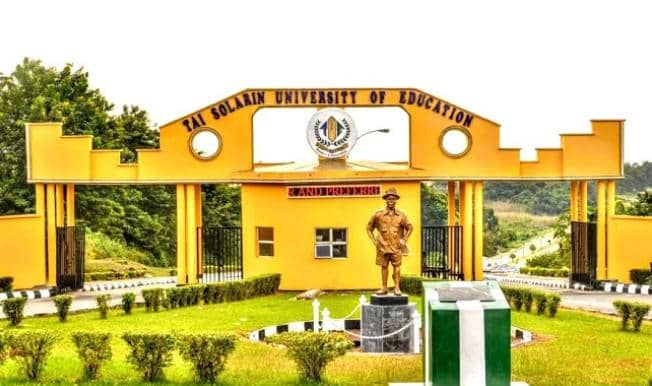More than 50 lecturers across various public universities and polytechnics in Nigeria have faced disciplinary measures for alleged sexual misconduct between April 2021 and April 2025, according to findings by The PUNCH.
While some of the accused lecturers—ranging from senior staff to professors—have been dismissed, others are undergoing disciplinary hearings.
The widespread nature of the cases highlights a persistent issue of sexual harassment within Nigeria’s higher education institutions.
A 2018 report by the World Bank Group’s Women, Business, and the Law project revealed that 70% of Nigerian female graduates had encountered sexual harassment during their academic journey, often from lecturers and fellow students.
Although the Nigerian Senate passed a bill in 2021 that proposes a 21-year prison sentence for lecturers found guilty of sexual exploitation, the law is yet to be signed by the president.
The most recent case occurred on April 24, 2025, when Abubakar Tafawa Balewa University, Bauchi, dismissed Dr. Usman Aliyu, a senior lecturer, following the verdict of the university’s disciplinary panel, which found him guilty of harassing a married postgraduate student, Mrs. Kamila Aliyu.
She had filed a complaint in 2024, accusing him of intimidation and threatening her academic progress.
Earlier, on April 14, 2025, the Lagos State University of Science and Technology terminated three lecturers—Mr. Nurudeen Hassan from the Department of Mass Communication, and Mr. Kareem Arigbabu and Mr. Olayinka Uthman from the Department of Arts & Design—over similar misconduct.
Their dismissal was based on the outcome of deliberations by the school’s governing council.
In November 2024, the Federal University, Lokoja, also removed four staff members from their positions due to sexual misconduct.
A few months earlier, in August, Abia State University, Uturu, had suspended Dr. Udochukwu Ndukwe from Mass Communication for three months following similar allegations.
In another incident in April 2024, a suspended lecturer at the University of Nigeria, Nsukka, Mr. Mfonobong Udoudom, was arrested by police after a video allegedly showing him harassing a student surfaced online.
He had previously been suspended indefinitely by the university.
Several such cases have been recorded in the past years. In 2021, Obafemi Awolowo University, Ile-Ife, sacked three lecturers from the English, International Relations, and Accounting departments for harassment.
That same year, similar disciplinary actions were taken by the Federal University, Oye-Ekiti; the University of Lagos; the University of Port Harcourt; and the Federal Polytechnic, Bauchi.
Ignatius Ajuru University of Education also terminated the appointment of a lecturer accused of impregnating a student, while Kwara State University, Malete, and Elechi Amadi Polytechnic in Rivers State dismissed lecturers over similar offenses between late 2021 and early 2022.
In April 2022, Obafemi Awolowo University began another investigation into allegations against a professor from the Department of Linguistics and African Studies.
By June that year, the University of Abuja had also dismissed two professors for similar misconduct, as confirmed by then Vice-Chancellor Prof. Abdul-Raheed Na’allah.
The wave of cases continued into 2023. The ICPC brought charges against Dr. Balogun Olaniran of Tai Solarin University of Education for allegedly requesting sexual favors to alter academic grades.
In Kogi State Polytechnic, a lecturer, Abutu Thompson, was fired in March 2023 for victimizing a female student.
Ambrose Alli University in Edo State also terminated a lecturer’s appointment in May 2023 after he admitted to making inappropriate advances and reportedly visited the student’s church to beg for forgiveness.
In July, the University of Abuja dismissed two more lecturers over misconduct, and in August, the University of Calabar suspended its Dean of Law, Prof. Cyril Ndifon, following multiple allegations.
The University of Lagos also took action in September, suspending a lecturer, Kadri Babalola, accused of raping a 21-year-old student.
Amid growing concerns, a lecturer from Kogi State Polytechnic, Mr. Onoja Baba, proposed a “Digital Anonymous Feedback System” to make it easier and safer for students to report such cases.
“Students often remain silent out of fear of backlash and bureaucratic delays,” he said. “Unless there are secure, trustworthy ways for victims to come forward, the cycle will continue.”

